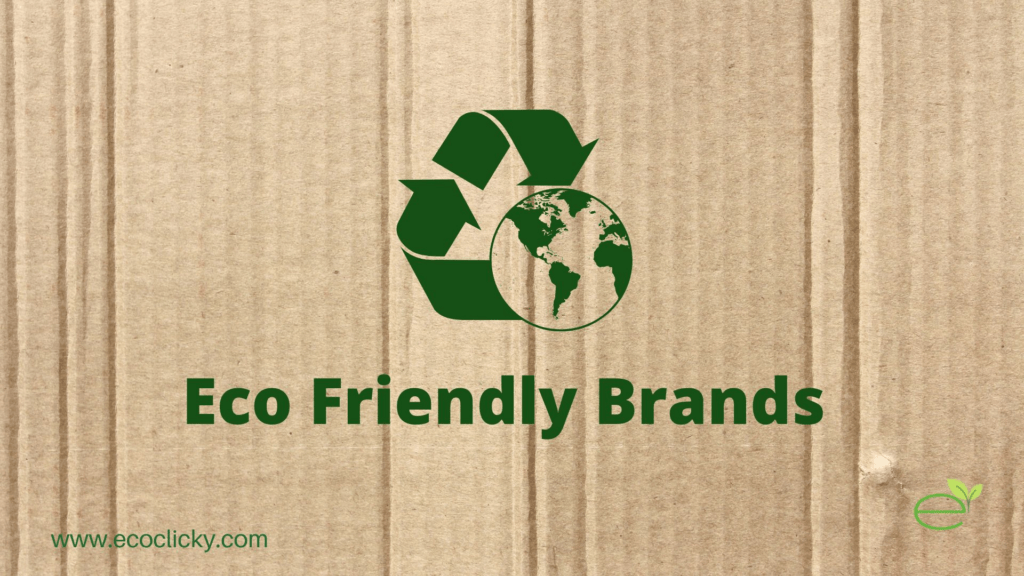With increasing awareness of the environmental and social impacts of consumer behavior, more people are seeking ways to live sustainably. If you’re committed to eco-friendly living, choosing brands that align with your values is crucial. In this article, we’ll explore some of the top ethical consumption brands for eco-friendly living. These companies prioritize sustainability, ethical production practices, and social responsibility, helping you make choices that benefit both the planet and society.
What is Ethical Consumption?
Ethical consumption refers to the practice of purchasing products and services that minimize social and environmental harm while prioritizing positive outcomes. It involves considering factors like environmental impact, labor conditions, and the sustainability of production processes. By choosing ethical consumption brands, consumers can contribute to a more sustainable and equitable world.
This approach to consumption goes beyond mere price and quality considerations, encouraging individuals to become conscious of the broader implications of their purchasing decisions. Ethical consumers often research a company’s practices, supply chain, and corporate social responsibility initiatives before making a purchase. This heightened awareness can lead to supporting businesses that align with one’s values and boycotting those that engage in harmful practices.
Key aspects of ethical consumption include:
- Environmental sustainability: Choosing products with minimal ecological footprint, such as those made from recycled materials, produced using renewable energy, or designed for longevity and recyclability.
- Fair labor practices: Supporting brands that ensure fair wages, safe working conditions, and prohibit child labor or forced labor throughout their supply chains.
- Animal welfare: Opting for cruelty-free products and avoiding those tested on animals or derived from inhumane animal farming practices.
- Local and small-scale production: Favoring locally-made products or those from small-scale producers to support local economies and reduce transportation-related emissions.
- Transparency and accountability: Preferring brands that are open about their practices and take responsibility for their social and environmental impacts.
- Circular economy: Supporting businesses that embrace principles of reduce, reuse, and recycle in their production processes and product designs.
The rise of ethical consumption has led to increased demand for certifications and labels that help consumers make informed choices. These include Fair Trade, Organic, B Corp, and Rainforest Alliance certifications, among others. However, it’s important to note that ethical consumption often requires consumers to navigate complex issues and sometimes make trade-offs between different ethical considerations.
Critics argue that ethical consumption places too much responsibility on individual consumers rather than addressing systemic issues. They contend that structural changes in economic systems and regulations are necessary to create truly sustainable and equitable production practices. Additionally, ethical products can sometimes be more expensive, potentially excluding lower-income consumers from participating fully in ethical consumption practices.
Despite these challenges, ethical consumption continues to gain traction globally. It has spurred innovation in sustainable product design and manufacturing processes, and has pushed many companies to improve their practices. As consumers become more aware of the impact of their purchasing decisions, they are increasingly using their buying power to support a more sustainable and just economy.
Moreover, the digital age has facilitated ethical consumption by providing easier access to information about companies and products. Social media and online platforms allow consumers to share information, experiences, and recommendations about ethical brands, creating a community of conscious consumers.
In conclusion, while ethical consumption alone may not solve all social and environmental issues, it represents a powerful tool for individuals to align their values with their economic choices. As this movement grows, it has the potential to drive significant positive change in business practices and contribute to a more sustainable and equitable global economy.
Why Choose Ethical Consumption Brands?
Selecting products from ethical consumption brands can significantly reduce your carbon footprint, support fair labor practices, and contribute to a more sustainable future. These companies often lead by example, implementing practices that reduce waste, conserve natural resources, and foster social equity. By choosing to support such brands, consumers not only acquire goods or services but also become active participants in a larger movement towards global sustainability and social responsibility.
Ethical consumption brands typically prioritize transparency in their supply chains, allowing consumers to trace the journey of products from raw materials to finished goods. This transparency often reveals a commitment to environmentally friendly production methods, such as using renewable energy sources, implementing water conservation techniques, or utilizing recycled materials. For instance, some clothing brands use organic cotton grown without harmful pesticides, while others repurpose plastic waste into durable textiles, directly addressing the issue of pollution.
In terms of labor practices, ethical brands often ensure fair wages and safe working conditions throughout their supply chains. This can include partnering with cooperatives in developing countries, implementing strict anti-child labor policies, or providing workers with benefits that exceed local standards. By supporting these practices, consumers indirectly contribute to improving the lives of workers around the world and promoting economic equity.
Moreover, many ethical consumption brands extend their impact beyond their immediate business operations. They may engage in community development projects, support educational initiatives, or contribute to conservation efforts. Some companies adopt a “one for one” model, where each purchase triggers a donation to those in need, effectively turning consumers into philanthropists through their everyday shopping choices.
The influence of ethical consumption brands often ripples through entire industries. As these companies demonstrate that profitability and ethical practices can coexist, they challenge competitors to improve their own standards. This can lead to sector-wide improvements in sustainability practices and labor conditions, amplifying the positive impact of individual consumer choices.
However, it’s important to note that navigating the world of ethical consumption can be complex. Greenwashing – the practice of making misleading claims about environmental benefits – is a challenge consumers must be aware of. Therefore, it’s crucial for individuals to research brands thoroughly, look for credible certifications, and stay informed about evolving standards in sustainable and ethical production.
In conclusion, by consciously choosing ethical consumption brands, consumers wield significant power to shape market trends and corporate behavior. Each purchase becomes a vote for the kind of world we want to live in, encouraging businesses to prioritize sustainability, fair labor practices, and social responsibility. As more people embrace ethical consumption, the collective impact has the potential to drive meaningful change towards a more sustainable and equitable global economy.

The Best Ethical Consumption Brands for Eco-Friendly Living
- Patagonia
- Patagonia is renowned for its commitment to environmental and social responsibility. The company uses eco-friendly materials, enforces fair labor practices, and donates significant portions of its profits to environmental causes. Patagonia’s Worn Wear program encourages customers to repair rather than replace clothing, promoting a circular economy.
- Eileen Fisher
- Eileen Fisher is a clothing brand dedicated to sustainability and ethical production. They incorporate organic and recycled materials into their products and maintain rigorous standards for social responsibility throughout their supply chain. Their Renew program aims to reduce waste by recycling old garments into new designs.
- Seventh Generation
- Seventh Generation offers eco-friendly household and personal care products. The company uses plant-based ingredients, and their packaging is designed to be reusable or recyclable. Seventh Generation is a champion of transparency, providing detailed information about their product ingredients and sustainable sourcing practices.
- Allbirds
- Allbirds is a footwear brand that places sustainability at the core of its operations. The company uses natural and renewable materials like merino wool, eucalyptus tree fiber, and sugarcane in its products. Allbirds is also committed to achieving carbon neutrality, making it a leader in the sustainable fashion industry.
- The Body Shop
- The Body Shop has long been a pioneer in ethical beauty. They are dedicated to cruelty-free practices, using sustainably sourced ingredients, and supporting fair trade. The brand’s initiatives include reducing plastic waste through refillable packaging and promoting community trade programs that empower marginalized communities around the world.
By choosing these brands, you can support businesses that are making a positive impact on the environment and society. Ethical consumption is more than just a trend; it’s a powerful way to drive change towards a more sustainable and just world.
Related Content
- Sustainable Fashion: Your Wardrobe and Eco-Friendly Choices
- How to Shop Ethically: A Guide to Conscious Consumerism
- The Rise of Sustainable Shopping: Trends and Tips
- Smart Shopping: Strategies for Saving Money and Finding Quality Products
- Smart Home 101: Benefits, Devices, and Getting Started
- How to Raise Eco-Champions: A Guide for Sustainable Parenting
- Ethical Consumer: the alternative consumer organisation
- 23 Best Eco-Friendly Companies You Must Know About in 2024
- The 15 Most Environmentally Friendly & Sustainable Companies (2024)
- Good On You – Sustainable and Ethical Fashion Brand Ratings


